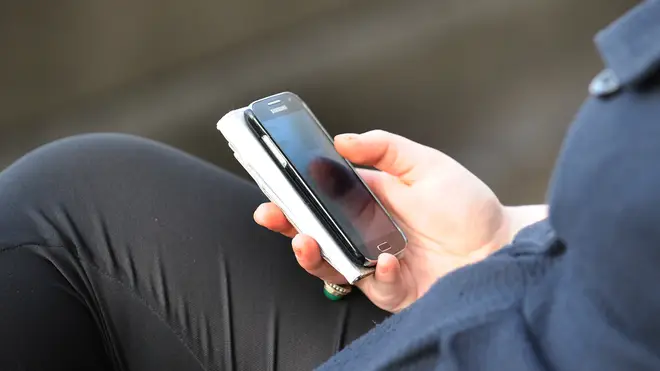
Ian Payne 4am - 7am
24 November 2020, 13:44

A report claims the UK is not seizing opportunity presented by aggregated and anonymised data, such as from mobile networks and payment transactions.
The UK is trailing behind other countries in making use of data to better understand the spread and economic impact of the coronavirus, a team of researchers have said.
Aggregated and anonymised data from mobile networks on how people move around and payment transaction data already gathered by companies are just some of the ways that could help give a more accurate picture of the pandemic at national and local levels, the Data Readiness: Lessons from an Emergency report suggests.
In Spain for example, the main mobile phone operators made it possible to see the daily flow of people from origin to destination between more than 3,000 districts.
“The UK has talked about making better use of data for the public good, but we have had statements of good intent, rather than action,” said Professor Neil Lawrence, from the University of Cambridge, who is also a senior AI fellow at The Alan Turing Institute and an author of the report.
“We need to plan better for national emergencies.”
The Royal Society Delve (Data Evaluation and Learning for Viral Epidemics) Initiative calls on the Government to extend the powers of the Office for National Statistics (ONS) to enable it to support trustworthy access to “happenstance” data – data that are already gathered, but not for a specific public health purpose.
But it warns that “careful cooperation” would be needed across the private sector, public sector, and researchers, as well as being developed in accordance with data protection legislation and ensuring it respects people’s concerns about data security and privacy.
“We need to look at the National Risk Register through the lens of what data would help us to respond more effectively,” Professor Lawrence continued.
The UK response to the #COVID19 has been hampered by poor data practices, says a new report from DELVE, the multi-disciplinary group convened by the Royal Society. It highlights how data already gathered could give a more accurate picture of the pandemic: https://t.co/AYkoHe2KOI
— The Royal Society (@royalsociety) November 24, 2020
“We have to learn our lessons from experiences in this pandemic and be better prepared for future crises.
“That means doing the work now to ensure that companies, the public sector and researchers have pathfinder projects up and running to share and analyse data and help the Government to make better informed decisions.
“Mobile phone companies might provide a huge amount of anonymised and aggregated data that would allow us a much greater understanding of how people move around, potentially spreading the virus as they go.
“And there is a wealth of other data, such as from transport systems.
“The more we understand about this pandemic, the better we can tackle it.
“We should be able to work together, the private and the public sectors, to harness big data for massive positive social good and do that safely and responsibly.”